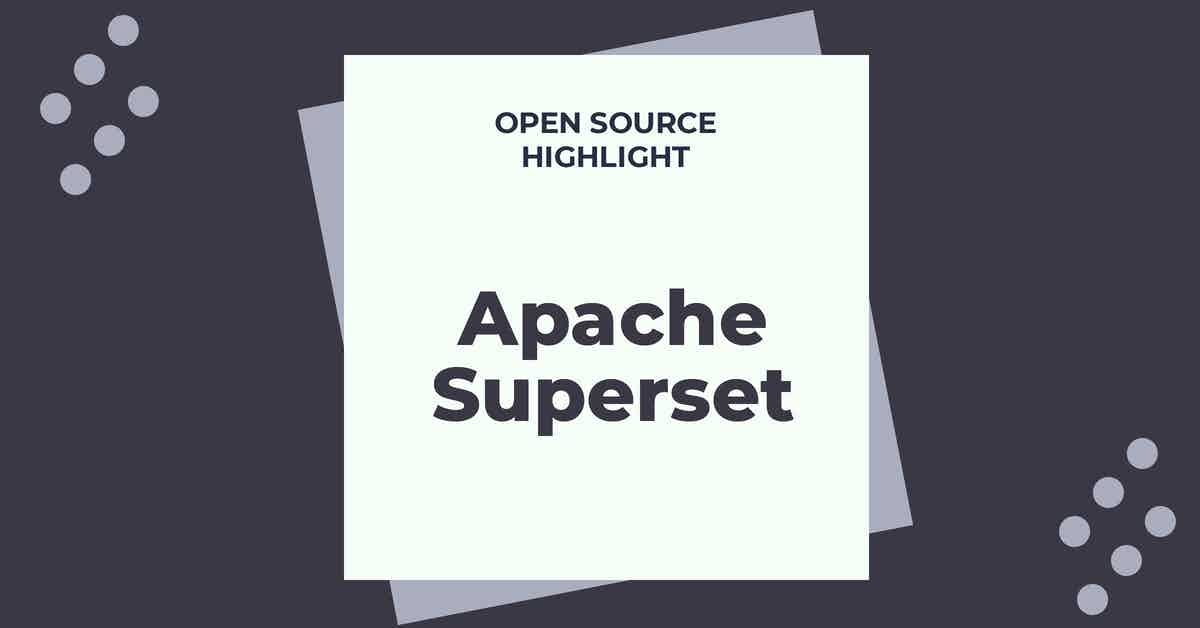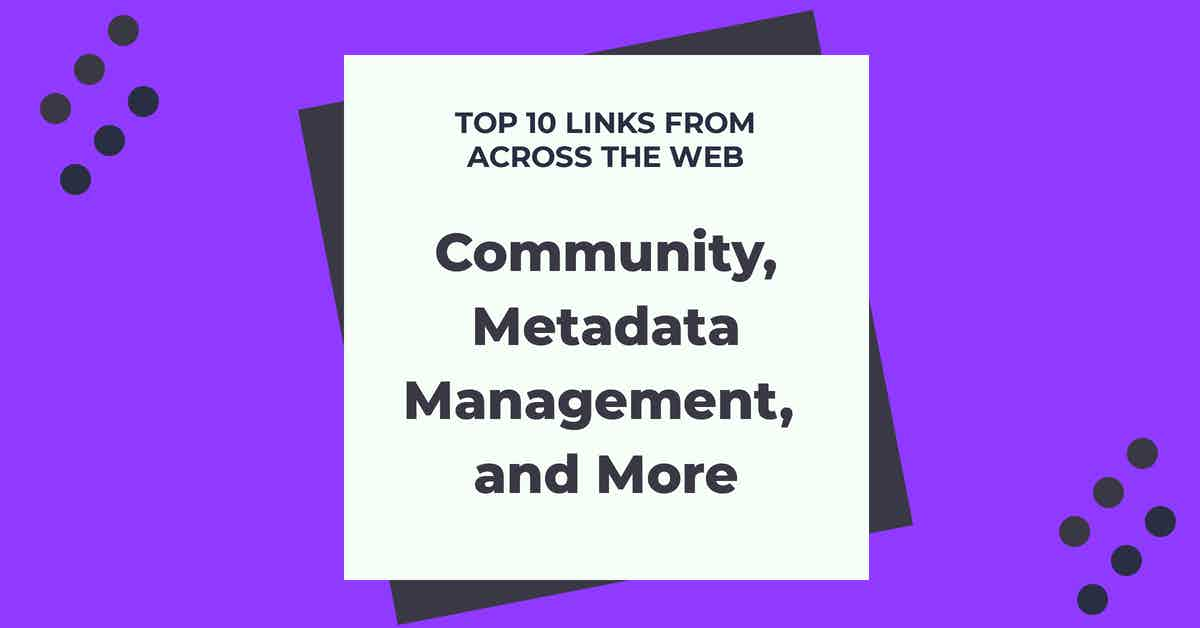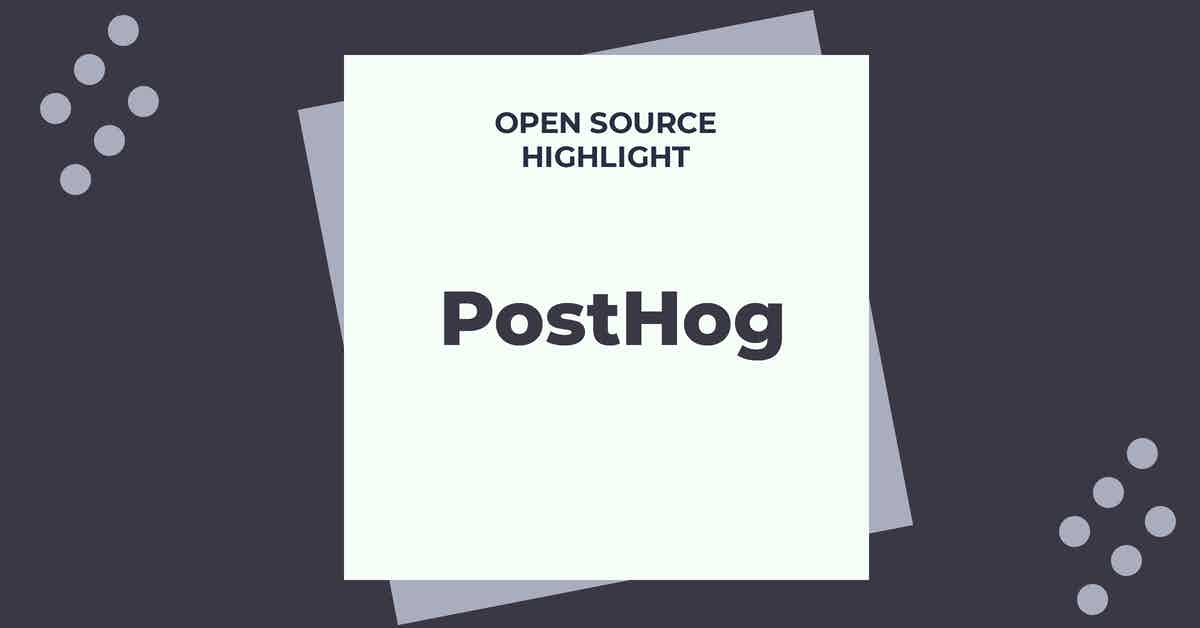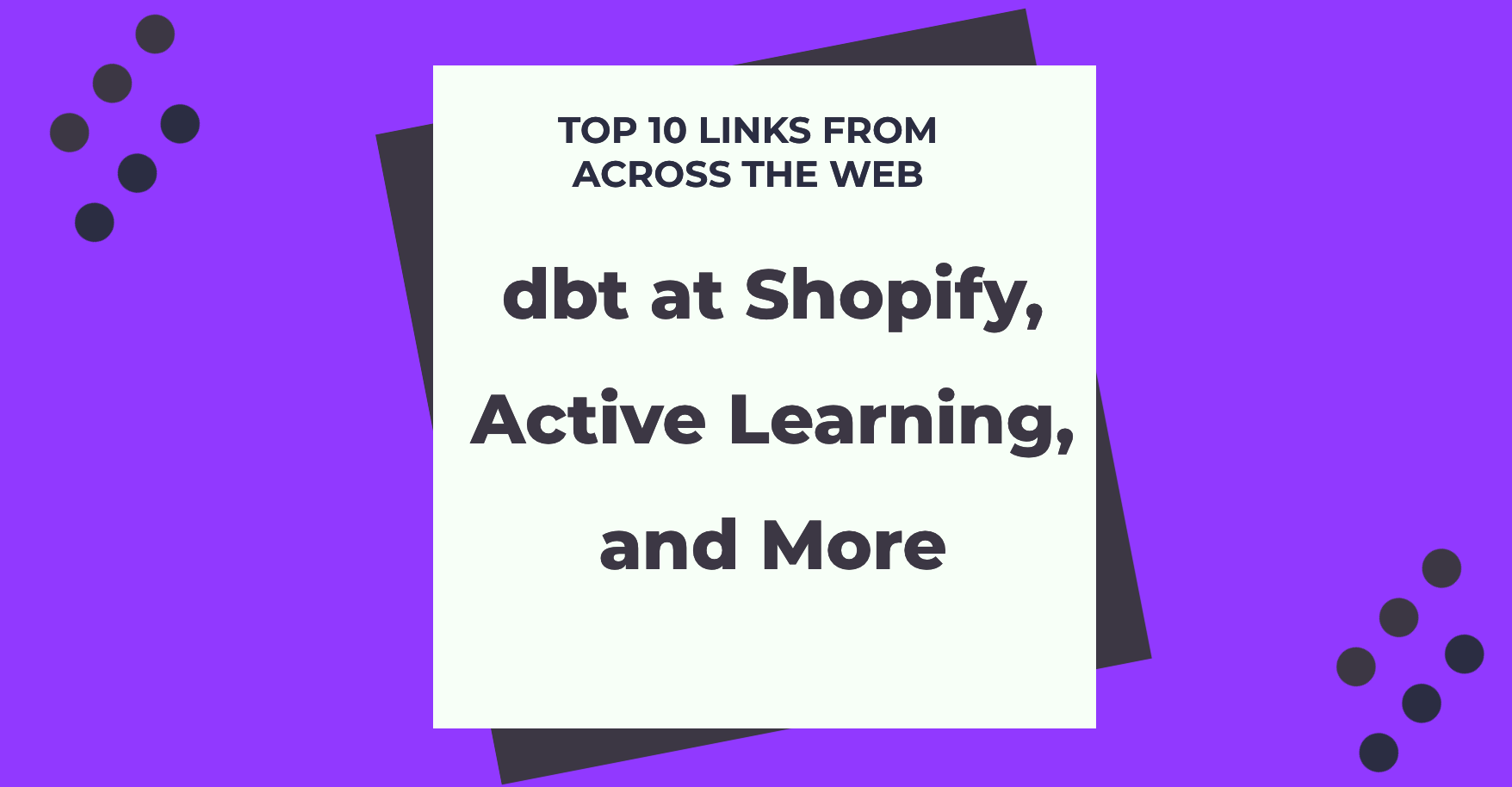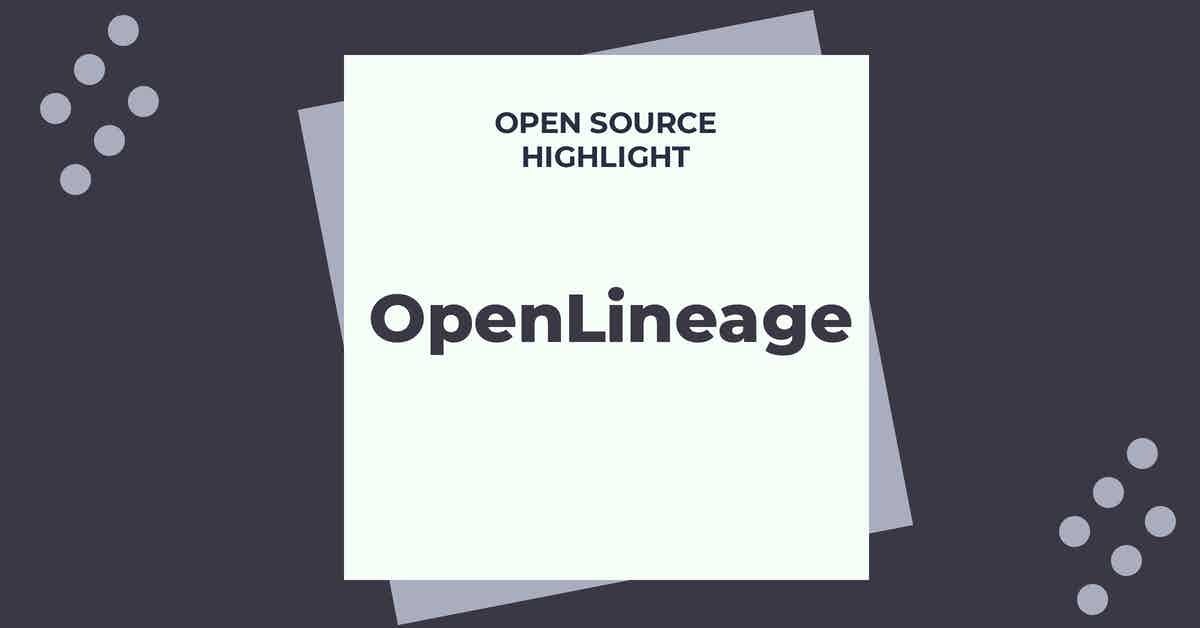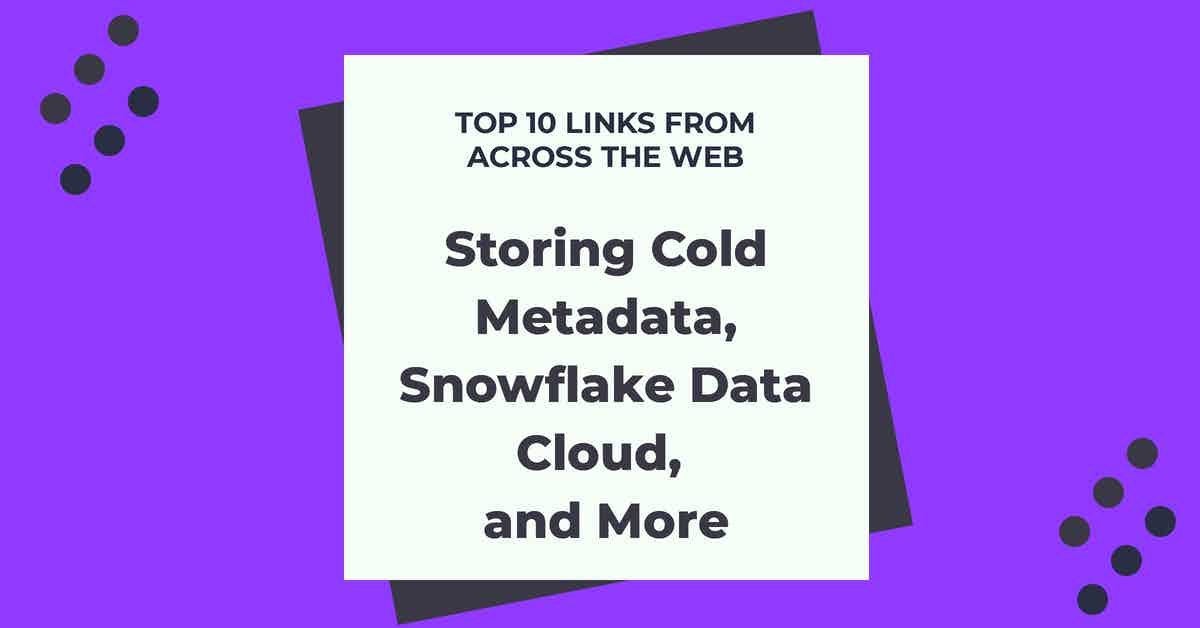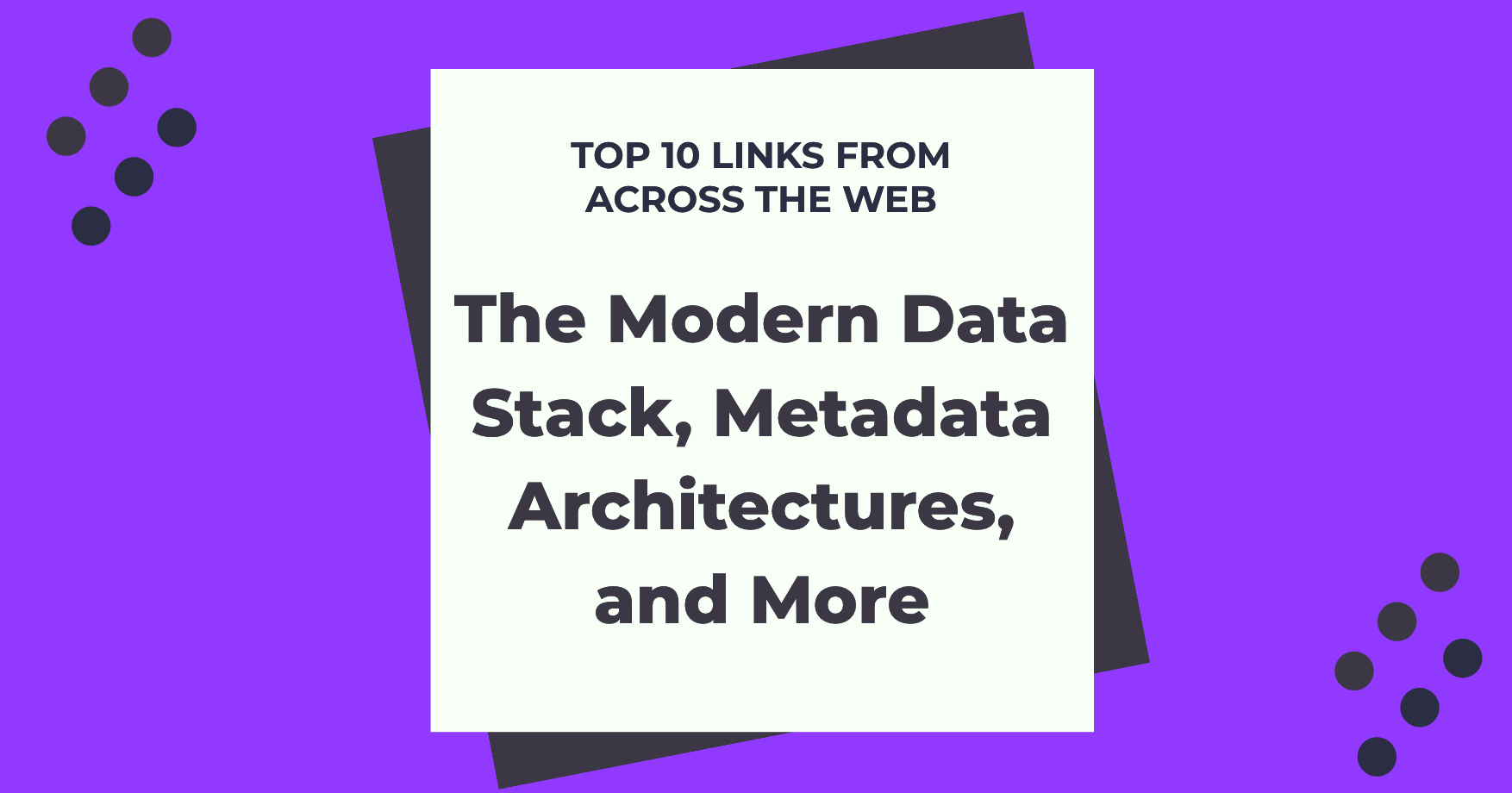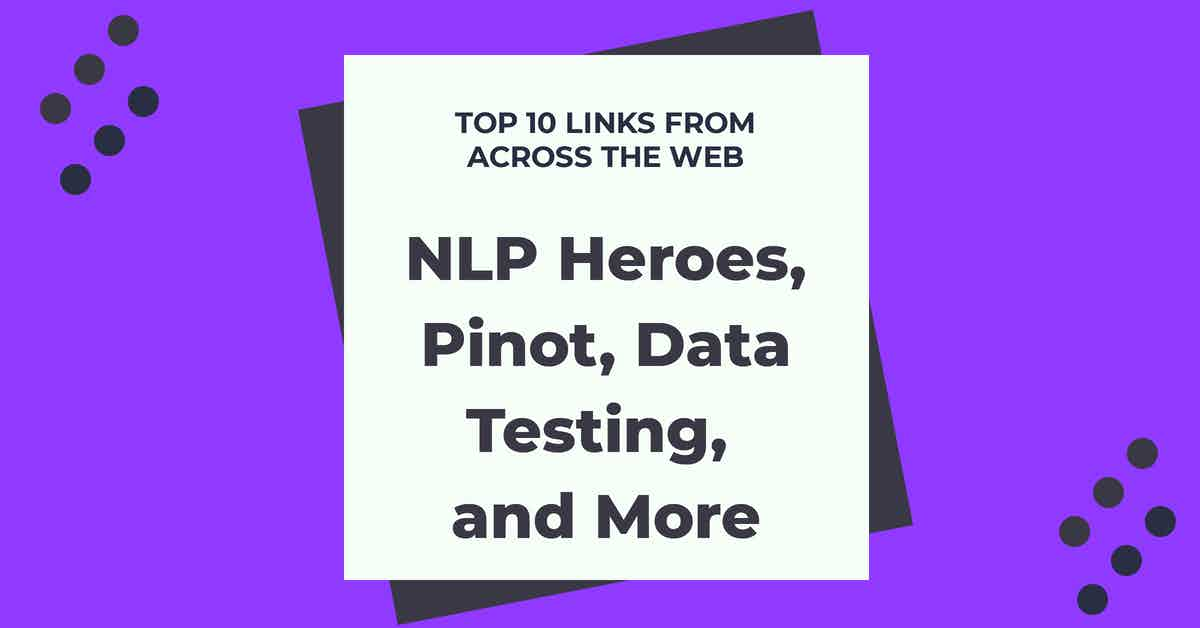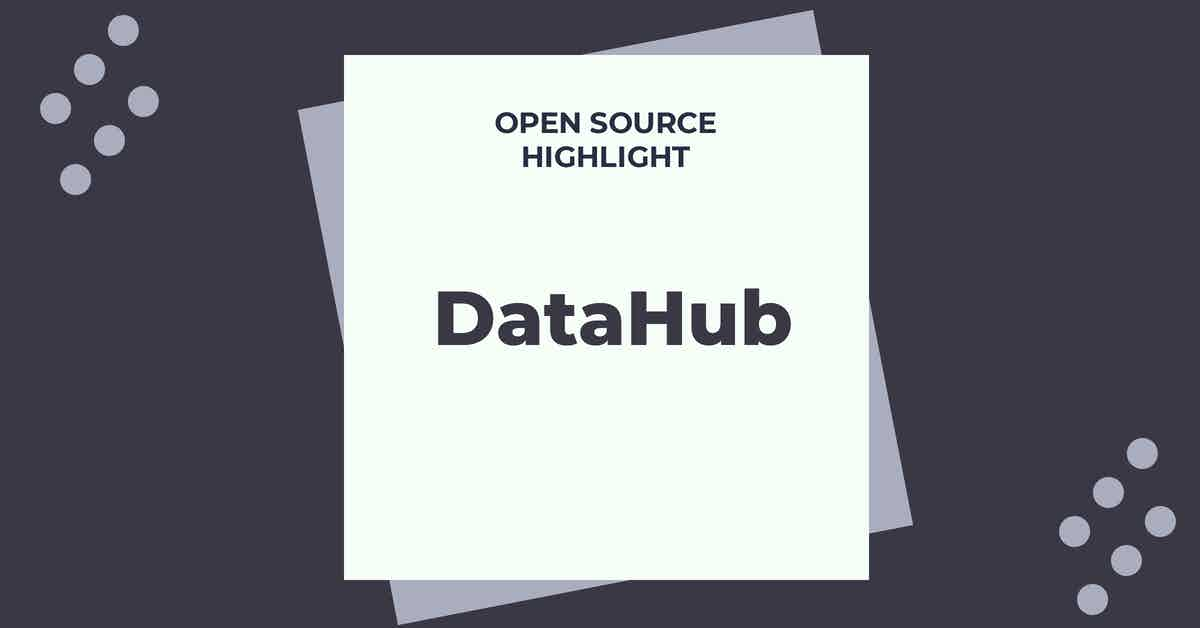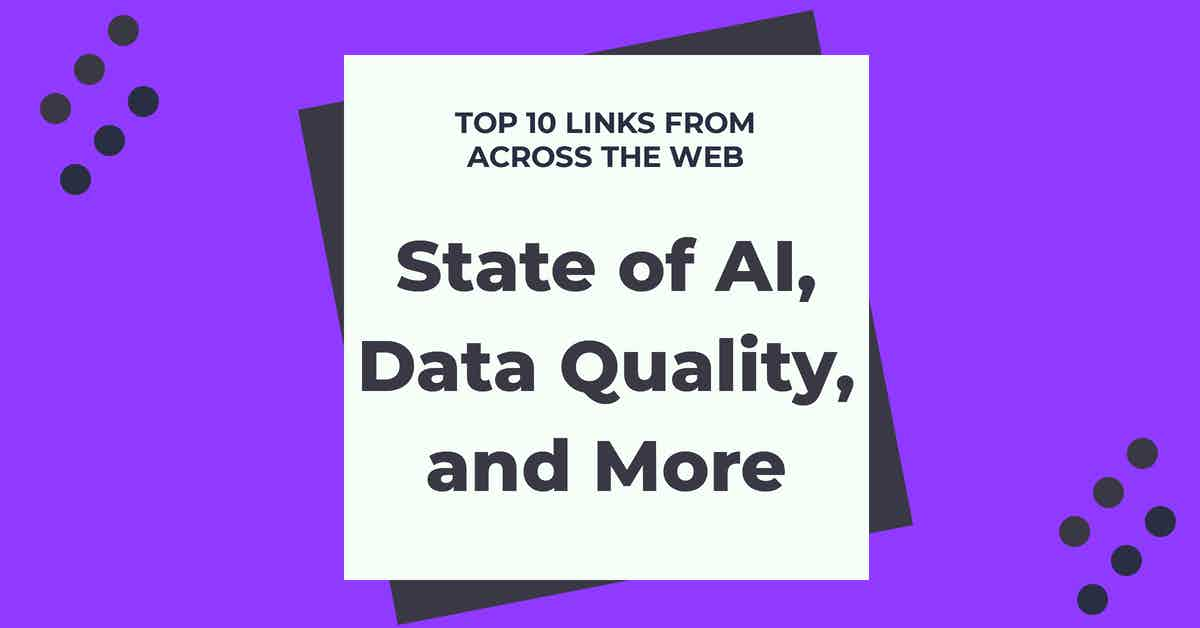Here's our March 2021 roundup of links from across the web that we selected for you:
1. How to Build a Community (Fishtown Analytics)
Here's our February 2021 roundup of links from across the web that we picked for you:
1. dbt at Shopify (Data Engineering Podcast)
The Data Engineering Podcast recently featured a very interesting discussion about dbt at Shopify. Engineering manager Zeeshan Qureshi and senior data engineer Michelle Ark explained how dbt answered Shopify’s need for an SQL-based solution that its data scientists could use autonomously. They also mentioned some of the best practices they followed for staging, and cost considerations related to BigQuery. Last but not least, they touched on some extensions they are considering, such as implementing Great Expectations for data quality control.
Here's our January 2021 roundup of links from across the web that could be relevant to you:
1. Storing Cold Metadata with Alki (Dropbox)
Dropbox shared insights into Alki, the petabyte-scale metadata store it designed for infrequently accessed metadata (“cold data”). The post details how one-size-fits-all database Edgestore was reaching capacity limits, and why audit logs were a good candidate to be moved elsewhere than on costly SSDs. After considering off-the-shelf options, the team settled on building its own solution on top of AWS services: Alki; with DynamoDB as the hot store, and S3 as the cold store. Like HBase or Cassandra, Alki is based on log-structured merge-trees (LSM trees), but is better suited to handle hot-then-cold audit logs, as well as future use cases at Dropbox.
Here's our December 2020 roundup of links from across the web that could be relevant to you:
1. The Modern Data Stack (Fishtown Analytics)
This long-form post on the dbt blog is a must-read. Titled “The Modern Data Stack: Past, Present, and Future,” it answers the question that Tristan Handy has been asking himself for the past two years: “What happened to the massive innovation we saw from 2012-2016?” His carefully thought-out analysis covers the natural cycles of technological shifts, defines the phase we are in as a ‘deployment’ one, and points out high-impact opportunity areas for the next few years - which you might find particularly useful if you are considering launching a new product.
Here's our November 2020 roundup of good reads and podcast episodes that might be relevant for your career in data:
1. Heroes of NLP: Quoc Le (Deeplearning.ai)
Here's our October 2020 roundup of good reads and podcast episodes that might be relevant to you as a data professional:
.png?width=347&height=97&name=Data%20Council%20AI%20logo%20(1).png)
